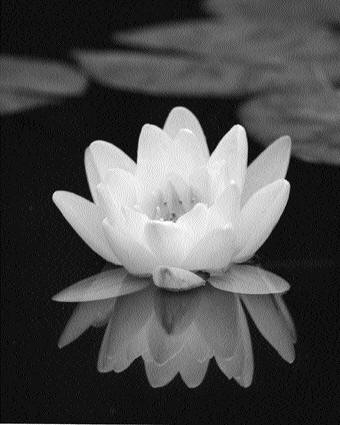Happiness in Buddhist perspective
”Happiness said life, is a wayward prize,
To be won by men with patient striving
Half the race you have won, now please arise
And push on the goal is at the turning”
Do you want to acquire eternal happiness? Well, if I happened to ask
this question from you, I’m sure you will answer this simple question
with a very big “Yes”. Of course, we all want to have happiness and all
of us love to live peacefully, but the idea of what constitutes
happiness is quite different and how it can be fully achieved is not
that easy.
Some say a person needs just three things to be truly happy in this
world; and that is someone to love, something to do and something to
hope for.
While some say happiness as seen by most people in this world is
sought for destination or regarded as something to be or so meone to
become: but to this crowd, happiness can be described as the end of a
rainbow in which they have to spend their whole life on chasing and
eventually they might start off chasing their own shadows as they shall
never find in the eternal that which only resides within.

Actually, “Happiness” is in our journey and never in the destination.
Therefore all living beings crave for this happiness working hard, day
and night. Although people put on great efforts to be happy in this
world they are often furtherer than nearer to what they have tried for
so far. So this is the reason as to why we need to find what real
happiness is.
So, now lets have a look at the society, a person with noble
aspirations is happy, a person who does good things and never harms the
others is blessed and is happy, a person who is allowing others to live
peacefully and he lives himself peacefully without disturbing the others
is happy, a person who contributes something to make this world a better
place is happy and a person who respects love is always happy and
contended.
When our modern lives are concerned, just think of the struggle we
make to gain financial rewards, comfort and luxury, but actually this
method of living does not bring about inner happiness. It only causes
worries and stress. Spiritual bliss attained by the detachment of
worldly pleasure is much higher than the materialistic gain. A rich
person may not be contented with his life; whereas a poor person might
be very happy with what he has. In order to be happy one should think of
what he has, not what he doesn’t have.
A poet has written:
To the fire flies the month
Knowing not it will die
Little fish bites the hook
Knowing not of the danger
But though knowing well the danger
Of the evil worldly pleasures
We still cling to them so firmly,
Oh! How great is our folly’
Buddhism teaches to gain happiness by treading in the correct path.
In one of His discourses regarding the four kinds of happiness, Lord
Buddha mentioned that a man must work hard to acquire wealth to lead a
prosperous life of peace and harmony. The two main ingredients for
happiness as explained in Buddhism are compassion and wisdom and always
a good life is inspired by love and guided by knowledge.
Compassion is loving kindness concerning all that live and wisdom is
seeing things as Compassion is loving kindness concerning all that live
and wisdom is seeing things as they are. Therefore ‘Happiness’ is a
state of mind. There was a girl by the name of Laura who always wished
to be happy and contended in her life. She too was taught at her younger
age that happiness is a state of mind and money can never buy it but
only could be cultivated within.
During her small age while walking from home to school, although
tired to concentrate on what she was taught, her mind was always
attracted towards women clad in charming suits with the attractive
handbags, jewellery, make up etc:, and the men in tailored suits going
to work by their luxury vehicles.
This poor girl never had a life of comfort and luxury though she
yearned for it.
Laura had the feeling that she should work hard and try to achieve
these ‘things’, which would make her happy. Laura successfully completed
her studies and started working in a company with just one
determination.
Due to her hard work she was able to reach her goal. But she started
wasting all her money on all her needs and wants and it was too late
when she realized it was a waste. Her attitude towards an affluent life
made her even poorer.
Abhidamma teaches that concepts such as ‘I’ or ‘You’ does not really
exist but deals with two main kinds of realities or truths which can be
described as fine elements of phenomena. Lord Buddha has taught four
types of ultimate truths of Paramatta Dhammas which are Chitta,
Chetasika, Rupa and Nibbana.
Citta is the mind or consciousness, Chetasika the mental factors
which arise with consciousness, Rupa are the material forms and Nibbana
is the highest bliss or supramandane state of eternal happiness.
Nibbana cannot be attained by satisfying the senses. So a person with
a wound which has just started to heal would start to scratch and the
scratching action would bring temporary relief within him but the
consequence would be enhancing of the wound spreading all over.
The true happiness that a person can acquire is far ahead from the
temporary relief that the person acquired from scratching, so similarly
the longing for sensual pleasures only brings about temporary joy thus
extending the life in Samsara.
Lord Buddha explained that the only cure for this samsaric disease is
‘Nibbana’, which is the end of suffering.
K.D. Buddhima Hansinie Subasinghe
|
